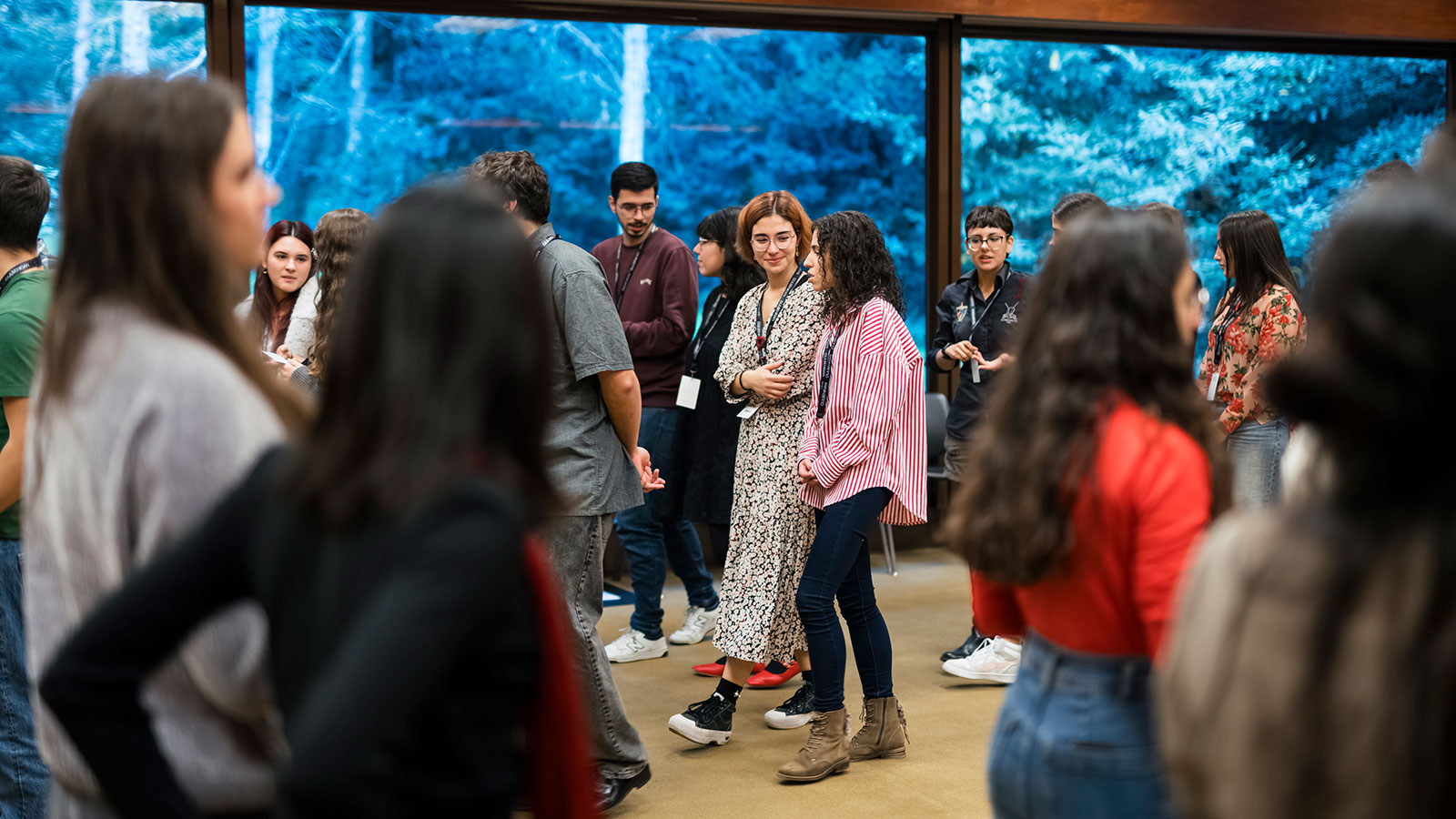“Young people are very powerful” and the Gulbenkian grantee network showed just how
In a room set up in one of the Gulbenkian Foundation’s outdoor gardens, the chairs, once empty, are gradually being filled. There are 84 of them. Different accents can be heard. Coming from Covilhã to the Algarve, as well as Porto, Aveiro, Beja, Braga, Viseu, among many other cities, the participants represented the different parts of the country all in the same room. These young people were all scholarship holders and they knew exactly where they were coming and what they were hoping to achieve: answering the question “what if… the network of Gulbenkian grantees served as a force for the common good?”
It was during the Impact Challenges workshop that, for the first time, some of the students from the Merit and New Talent scholarships came together. The aim was to find answers to the question that resonated with them over the following two days. “Right now we feel that we live in a society that is so fast, so intense that there is very little room for living in the present,” explains Sara Magno, 21, an ambassador for the New Talents scholarship, shortly after contextualising her field of study within Psychology. “What Vasco Gaspar did during the workshop with the meditation sessions, the use of the compassionate hand, the focus on the present moment by feeling the chair or the feet on the floor, this is all part of what we call third generation therapies in psychology, which focus precisely on bringing us into the present,” she explains.
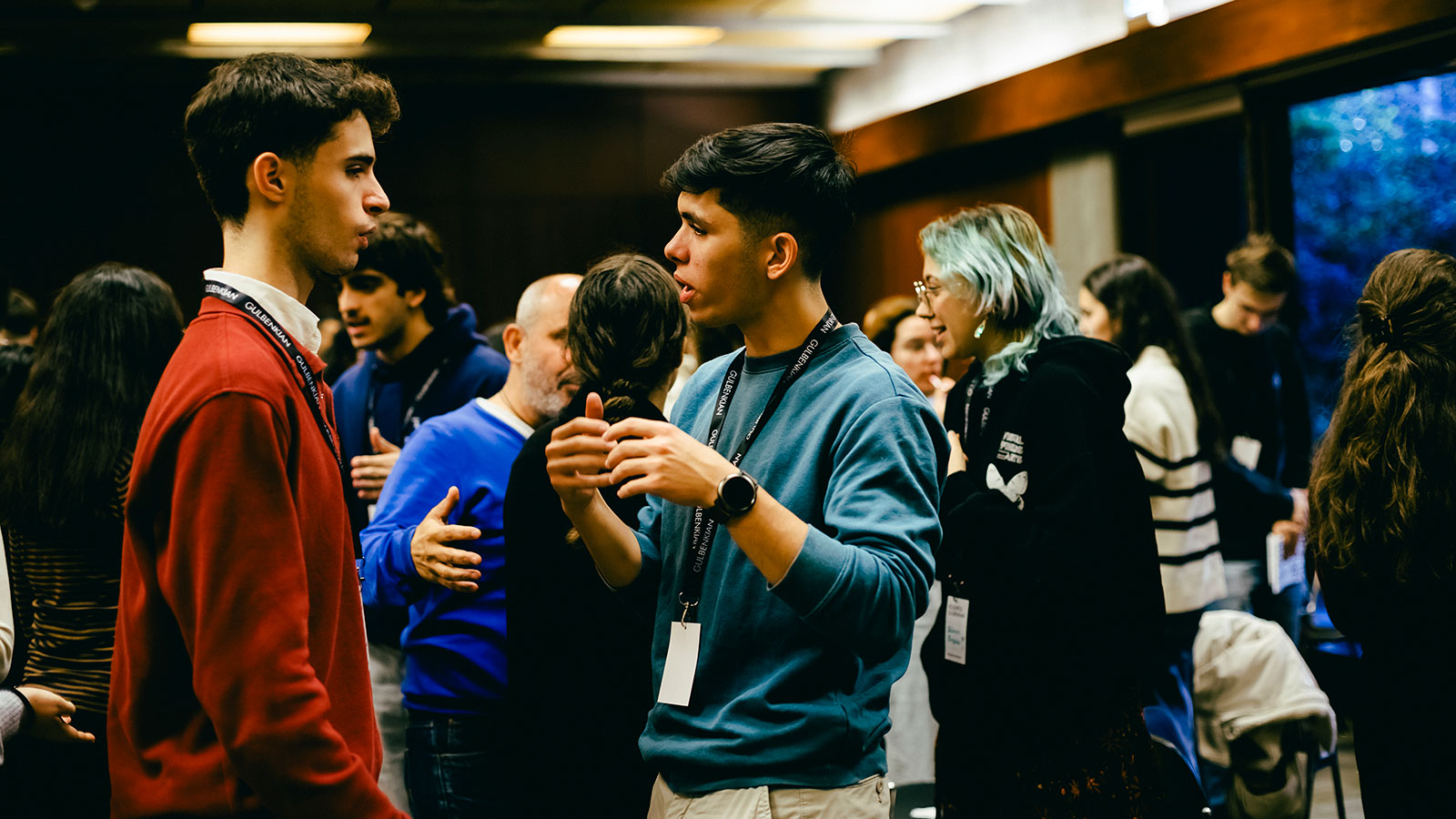
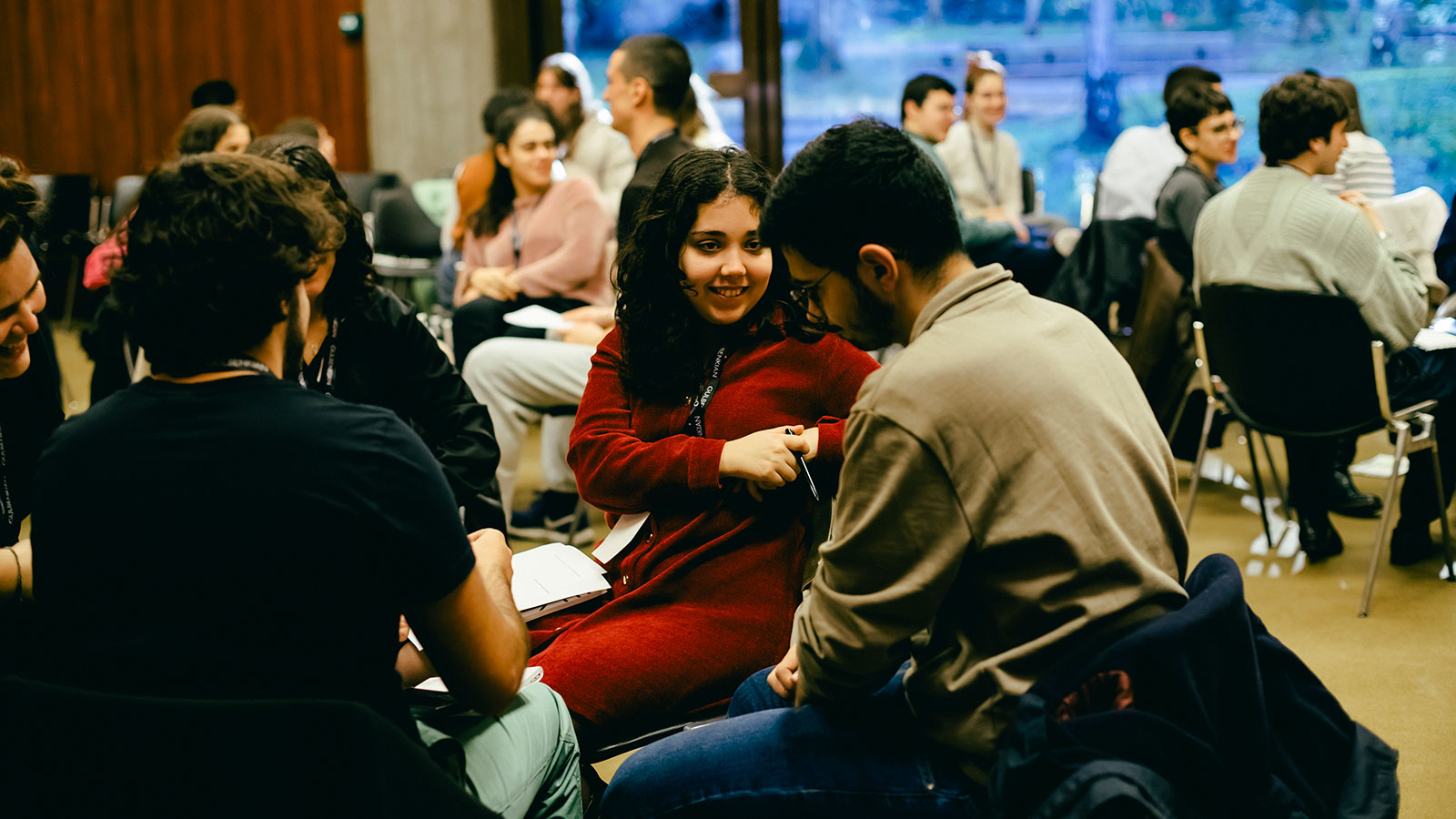
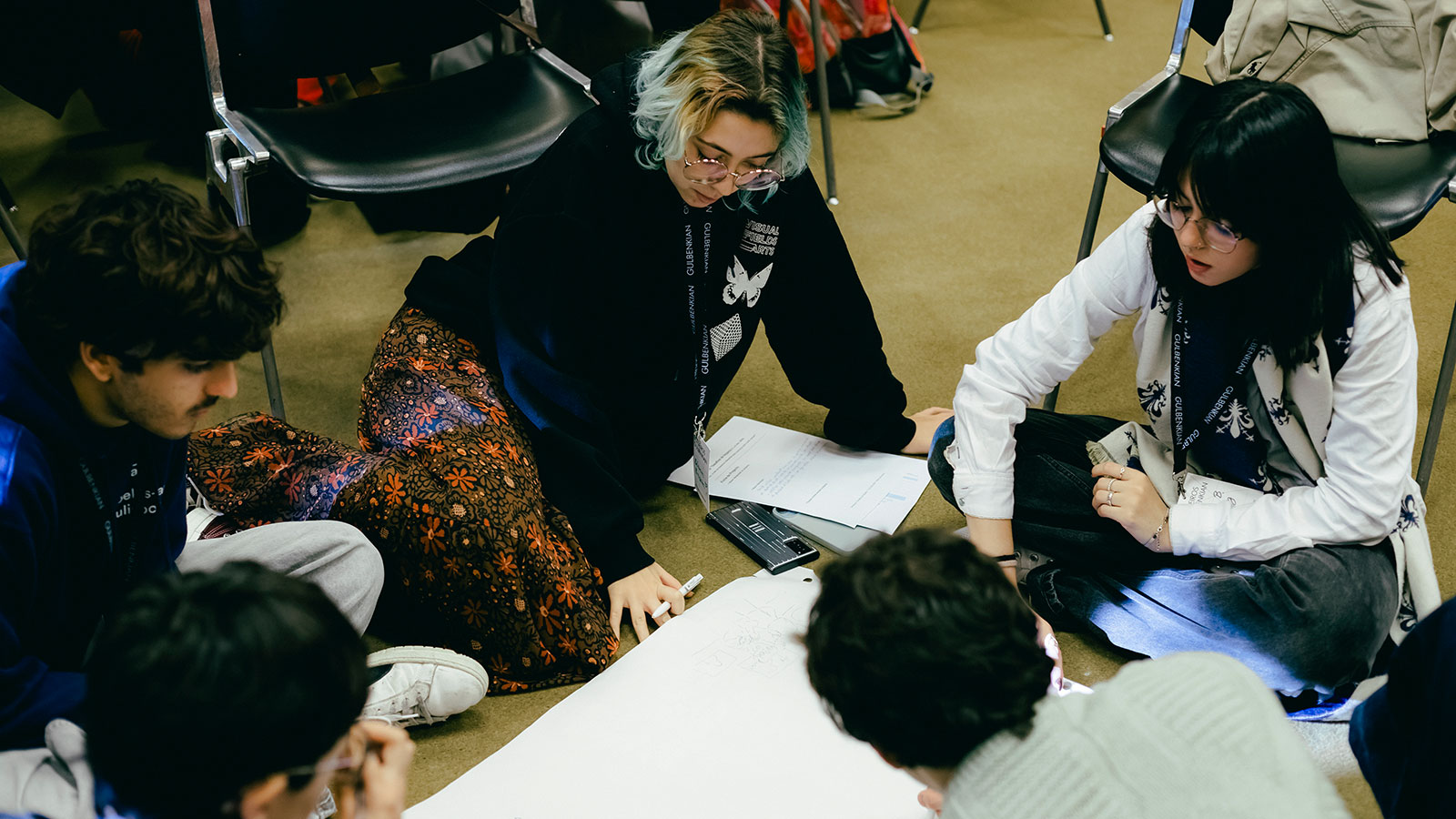
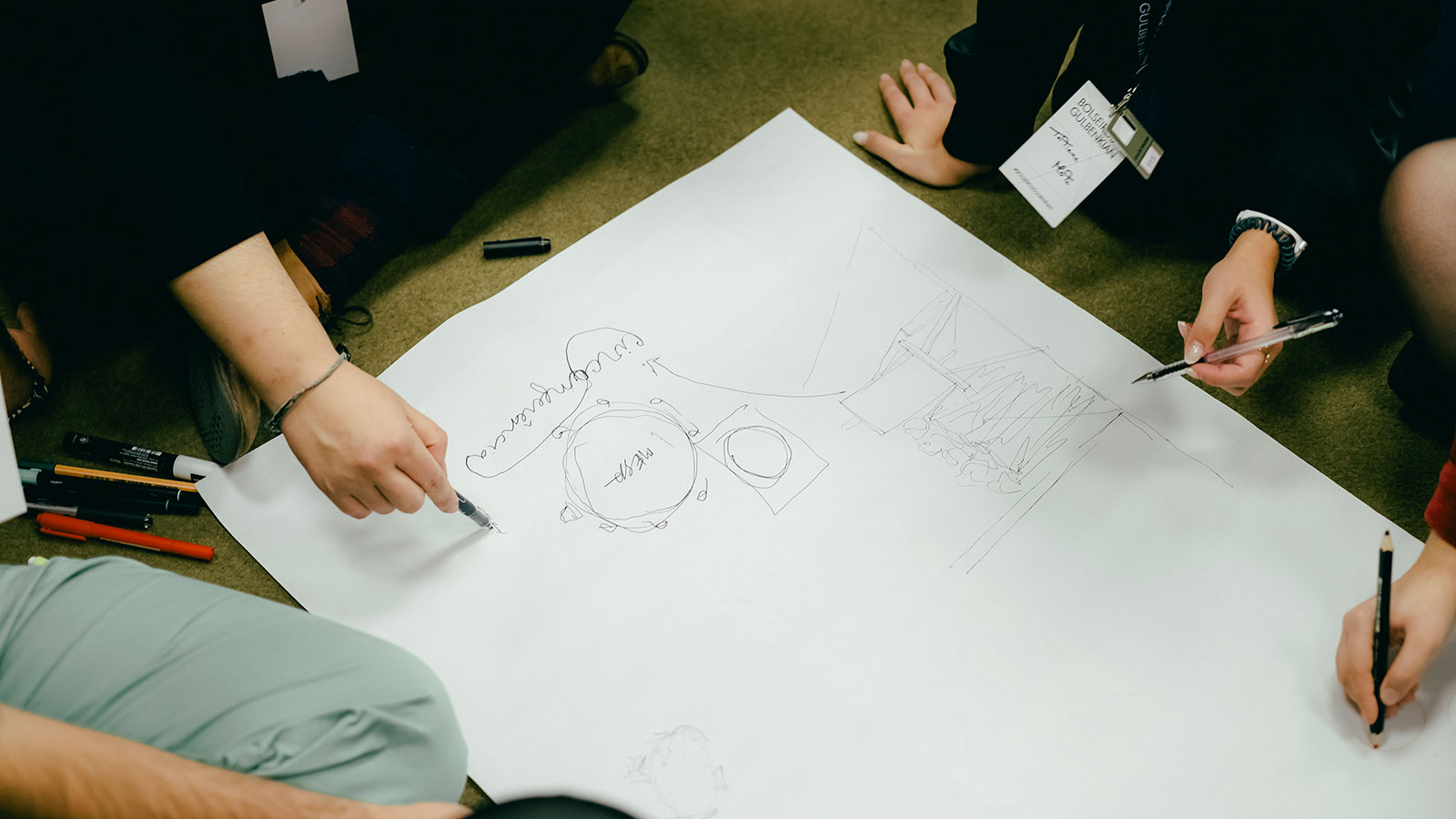
Everyday life is a vortex of people “lost in the whirlwind of their thoughts, under a thousand layers of invisibility”, according to facilitator Vasco Gaspar, and these students are no different. Over the course of two days, the aim was to counter this movement.
Using an immersive process based on Theory U, Vasco Gaspar and Marco Abreu opened all the necessary doors to create a day of reflection, creativity and development of tangible actions that would help shape contributions to a fairer and more sustainable society. “We never know the impact our lives have on things and vice versa, and having the chance to have a day where almost 80 people allowed themselves to stop and connect with each other, thinking about the world, social problems, the planet, listening to the voices of marginalised people and seeing things from a more human, more genuine perspective, makes me feel very inspired,” Vasco Gaspar recognises.
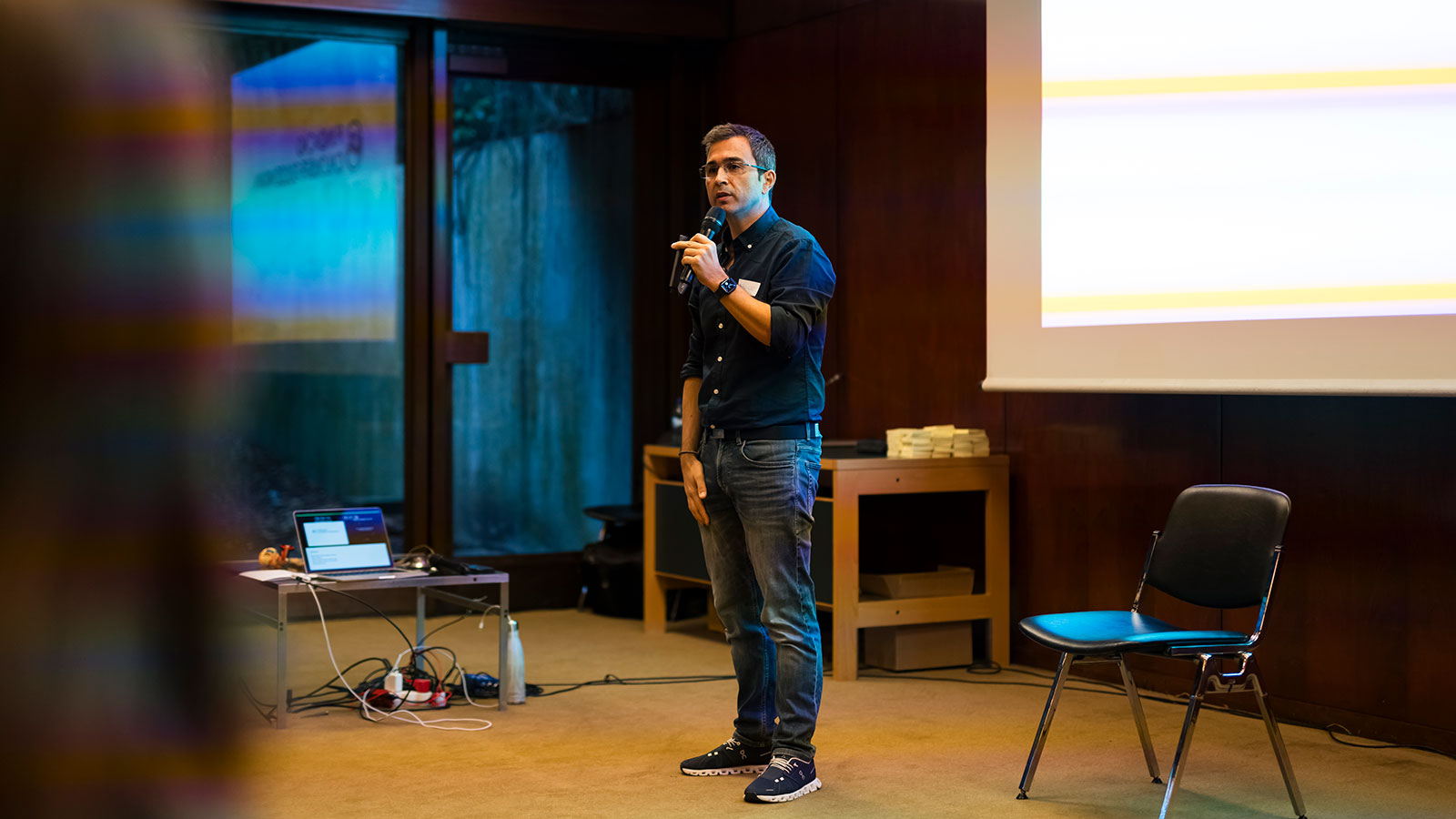
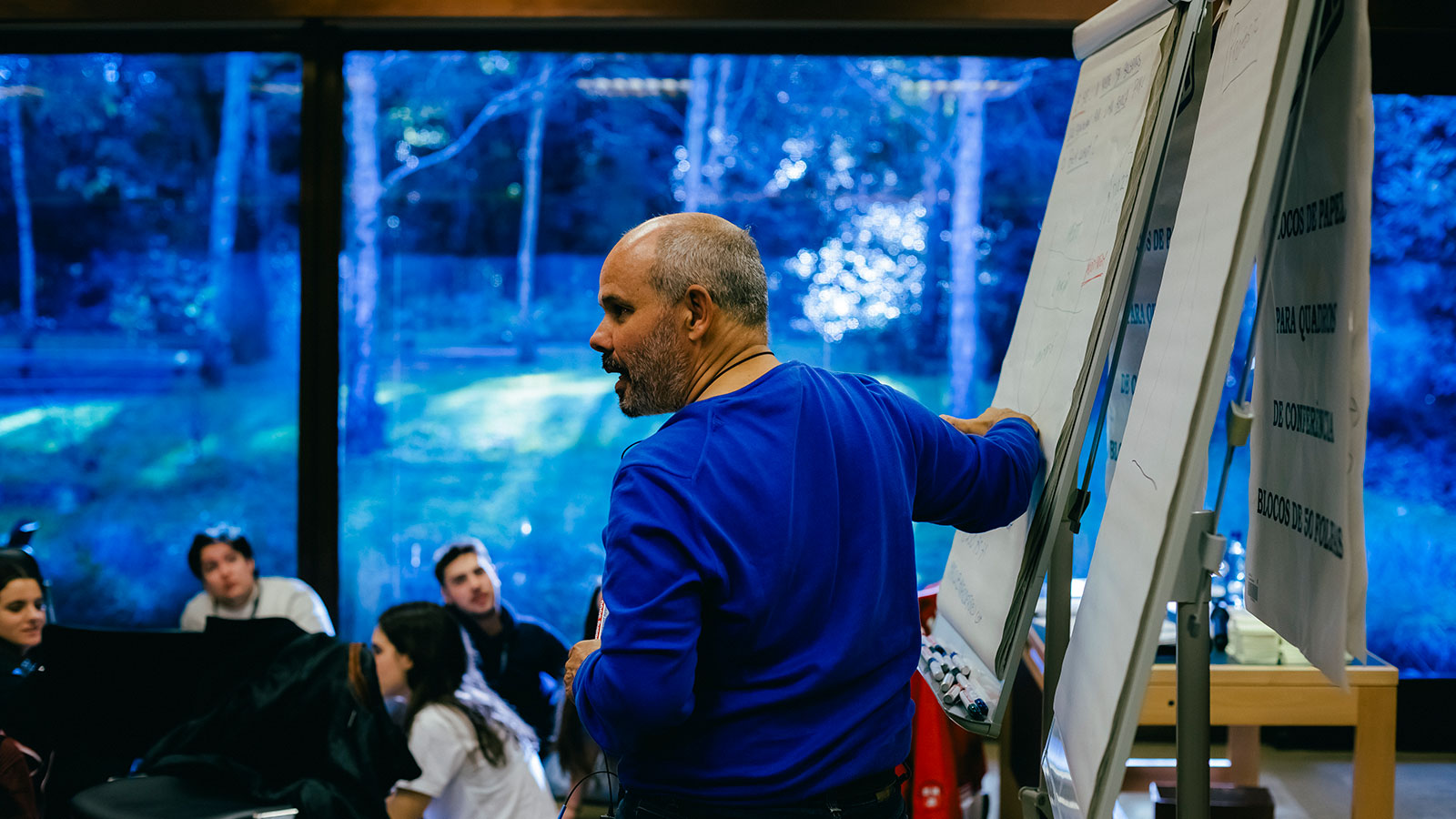
Throughout the day, the desire to make “Gulbenkian scholarship holders be seen as more than just good students” was emphasised, and this was achieved through different dynamics. During the morning, the participants put notes on each other’s backs, in pairs, where they wrote down each other’s positive traits and insecurities after a few minutes of conversation. Another dynamic was the act of listening without interruption – Dialogue Walks – also in pairs, which encouraged them to reflect on their lives, how they see themselves and what they would change.
Just as physical health was the major focus of the 20th century, mental health is the focus of the 21st century. After a recent pandemic and a crisis that has placed humanity under threat, the practice of Mindfulness became increasingly popular and Portugal was no exception. Vasco Gaspar used these techniques to explain exactly what mindfulness is all about during the workshop. “It’s a tool of great importance for our well-being and mental health”. For the facilitator, “it inspires us to think about the future and to want to contribute to society”.
Anxiety, pressure, an immense suffocation eat up our time. In Western culture, thinking is task-inducing and people become obedient and anxiously task-orientated. As the facilitator points out, “it’s really innovative to think about the mental well-being of our scholarship holders, of the community, to go beyond a mere scholarship and embrace a programme that also contemplates emotional management, hoping that it will have an impact on the community and that it will help the scholarship holders through these innovative methods, based on the U Theory from the MIT Business School.”
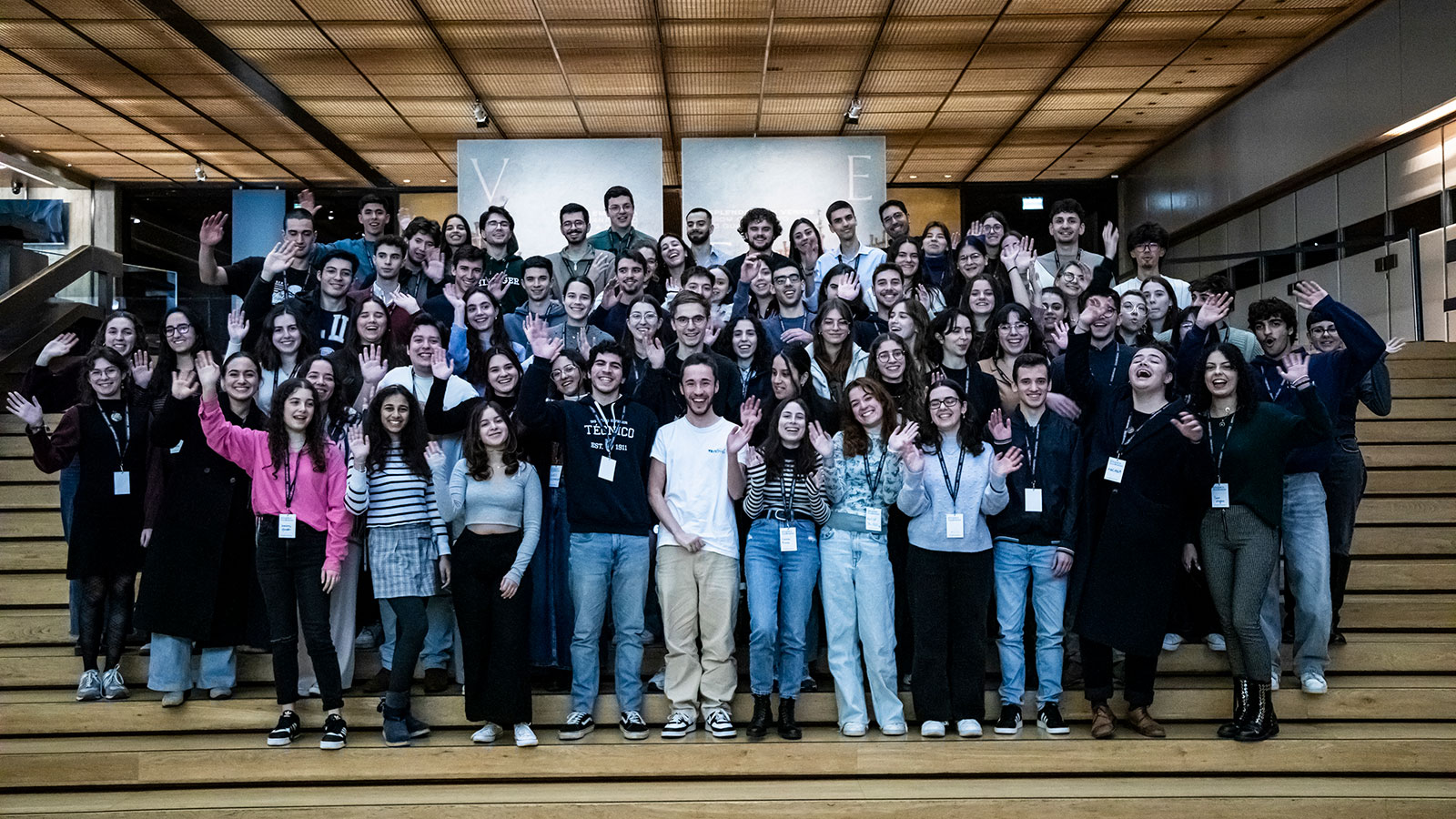
In search of (dis)order
The mask of our days is infinitely smaller than the mask of our times, and for 19-year-old Vitória Ferreira, getting close to people who not only come from the same background as her, but who are empathetic, can also be part of a new language. The challenge of thinking as different entities – the planet, a marginalised community or a child in six generations’ time – was one that triggered not only multiple visions but also many questions: “Most of the time, when I spoke on behalf of each of these entities, I was speaking about something that I also identified with. I thought this was really curious because I know that there are problems in all these dimensions and, if we look deeply, they are also problems that translate into ourselves,” says the young woman from Porto, who is also a novelist and poetry author.
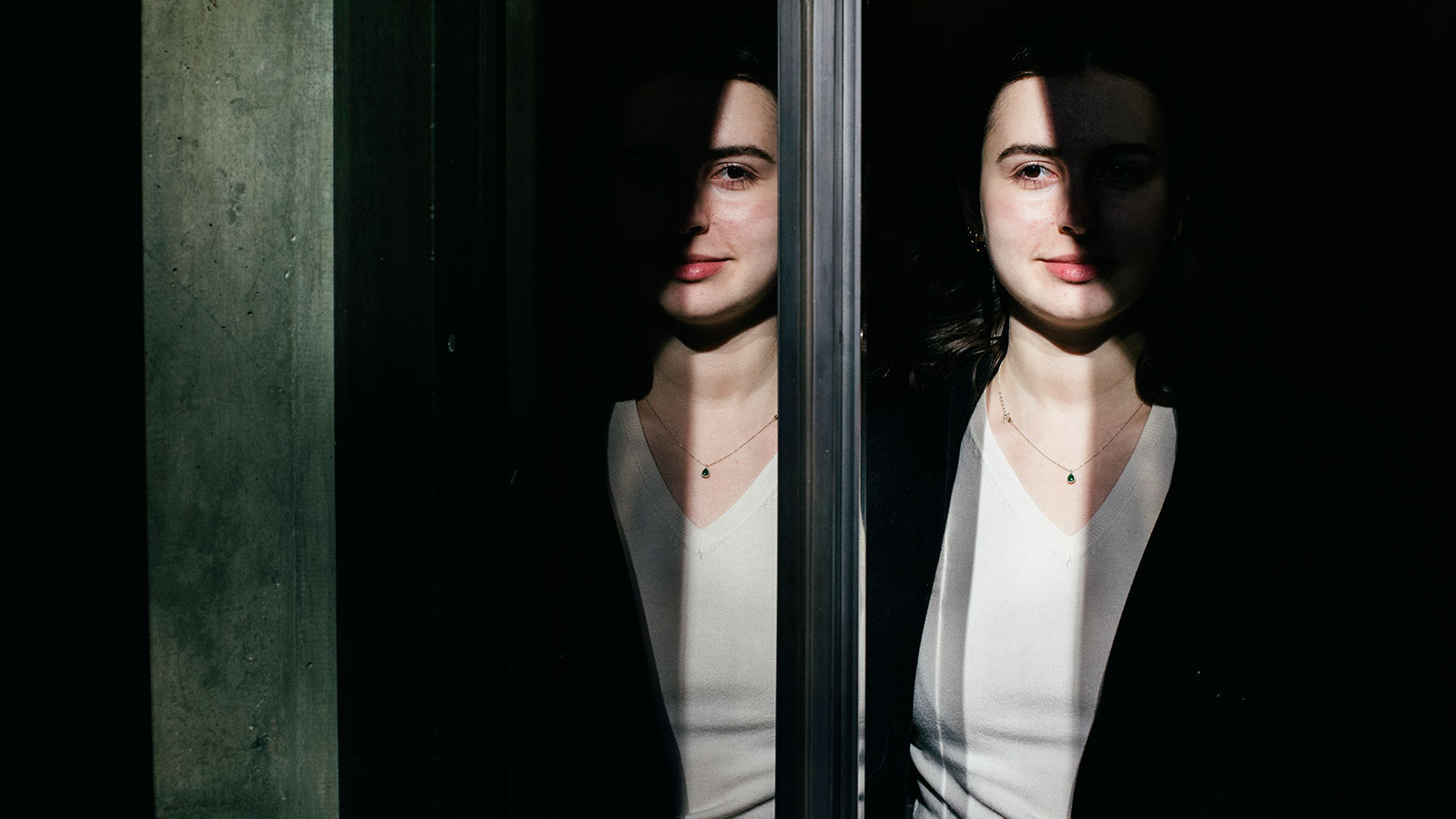
They change rooms. The new dynamic requires them to create groups, where they map out the roles of each entity that they answer to, be it the university community, the Foundation or the community in general. Using objects such as buttons, plasticine and cotton wool, the young students turned to their imagination and held discussions in order to create a system they would like to be part of. “Thinking about changes from different perspectives and prioritising each of the realities we experience there through the ‘intelligence of our hands’ – rather than our heads – was a really important moment,” says Mariana Resende, 19, as she tidies up one of the stations inside the room.
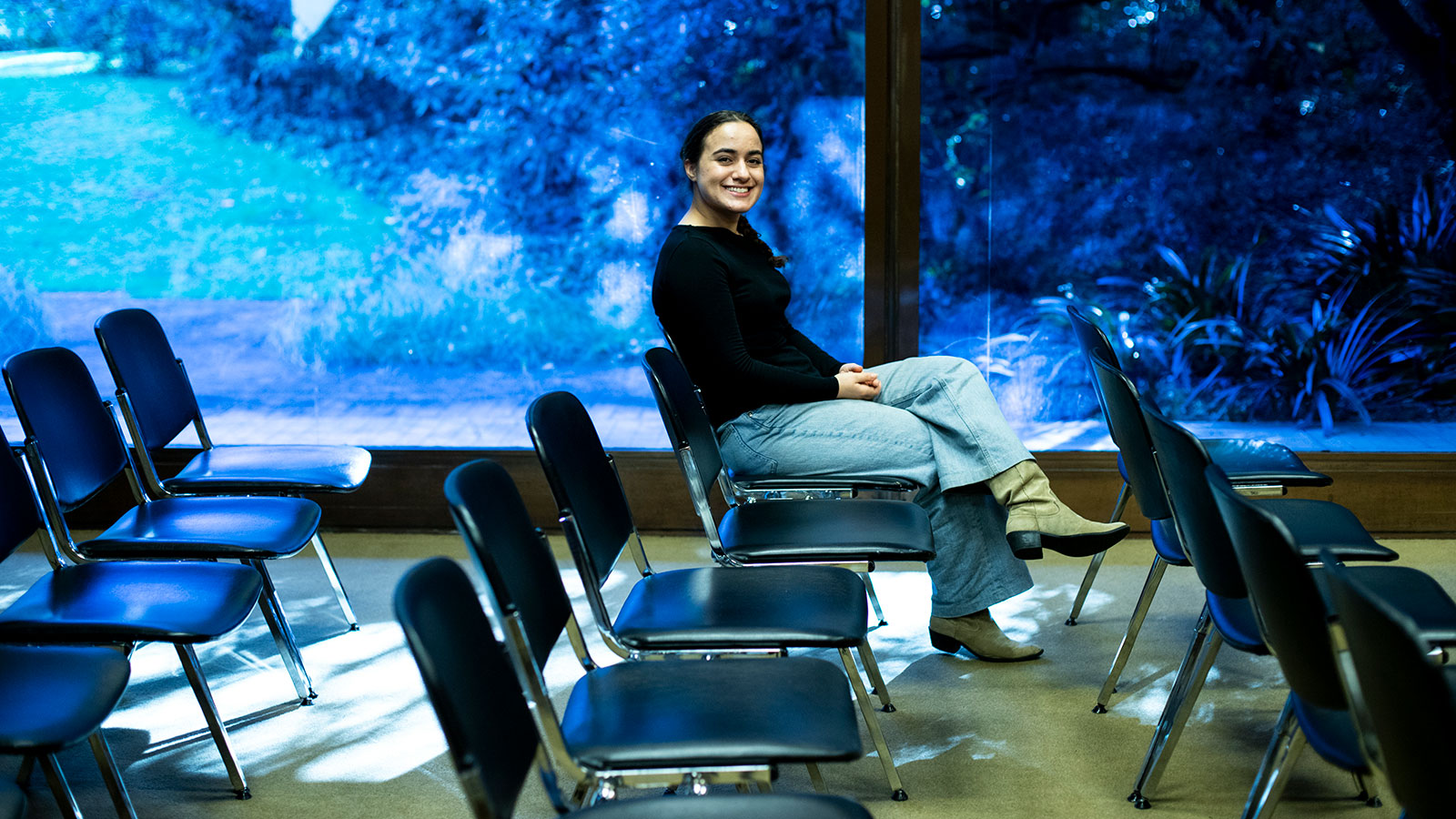
Mariana is from the city of Aveiro, but moved to Porto at an early age to study Law. It was the first time she had left either of the two cities by herself. For her, this was an experience that “not only brought her closer to the scholarship holders, but also allowed her to escape the university setting”.
Astonished that they ‘connected’ so immediately, after a talk session and an afternoon of journaling, meditation and a picnic for two, it’s clear that the ingredients that allow people to ‘connect quickly’ were all there: the choice of videos shown beforehand, the stories that are told, “there’s all this behind-the-scenes work that allows you to grasp certain moments that are more introspective and which will subsequently revitalise the nervous system”, we hear Vasco explaining to a group of young people who asked him about the methods used at the end of the session. Hence the games that followed until the time came to share ideas.
With a creative space fully available, the aim of these 13 small groups was to build an idea that could be carried out throughout the year. It seems that the goal has been achieved: from launching a season of podcasts, to volunteering with the elderly, to fact-checking initiatives and holding conferences and debates.
“Where is humanity headed?”
“I felt that people were confessing things to me that they had never confessed to anyone,” says Mariana Maia Rocha, who, at 24, represents the Arts and Humanities fields in the Calouste Gulbenkian Foundation’s network of New Talent scholarship holders. Recalling the different practices carried out in Vasco Gaspar’s workshop, which continued the following day with Marco Abreu, she recognises with surprise just how “fascinating it is the way in which such a strong relationship is created in such a short space of time, but the truth is that we’re all together trying to find solutions and identify problems, and that’s what being part of the Gulbenkian family is all about.
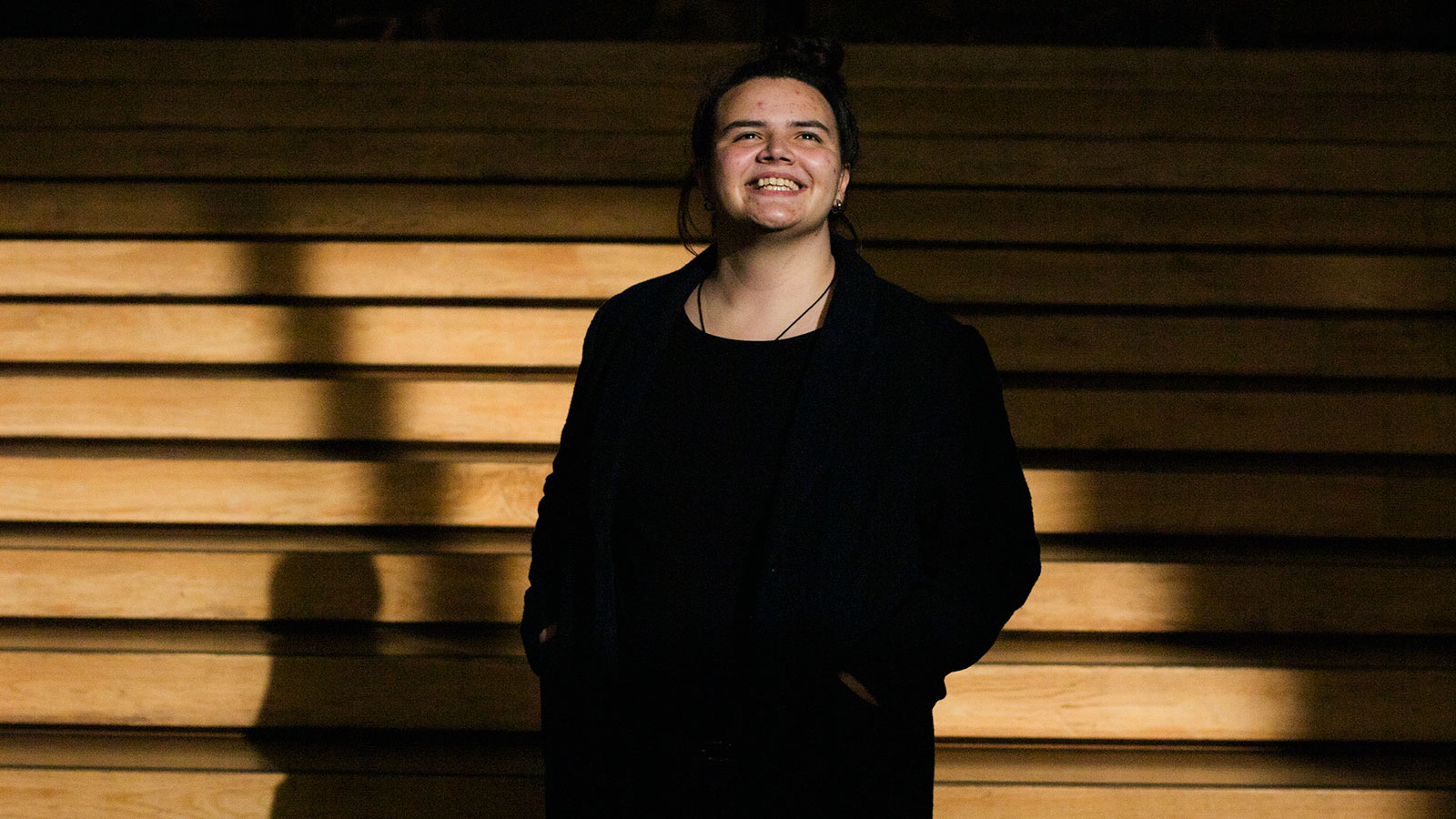
While the idea on 7 December was to create a safe space for young people to have time to think, the aim on 8 December was to figure out how to make these projects a reality. The debate began among the groups. Time was short and the projects needed to plan various phases and challenges they might have to overcome, including reaching a consensus, changing the whole creative process and thinking of something applicable. This is all part of the cycle of tasks which, as the facilitator explains, is a way of “developing competences and defining the whole process of the products and services that they will deliver”. Understanding the purpose of the task cycle was the essential goal, because in order for something to materialise “you have to understand who it serves and what its purpose is,” he adds.
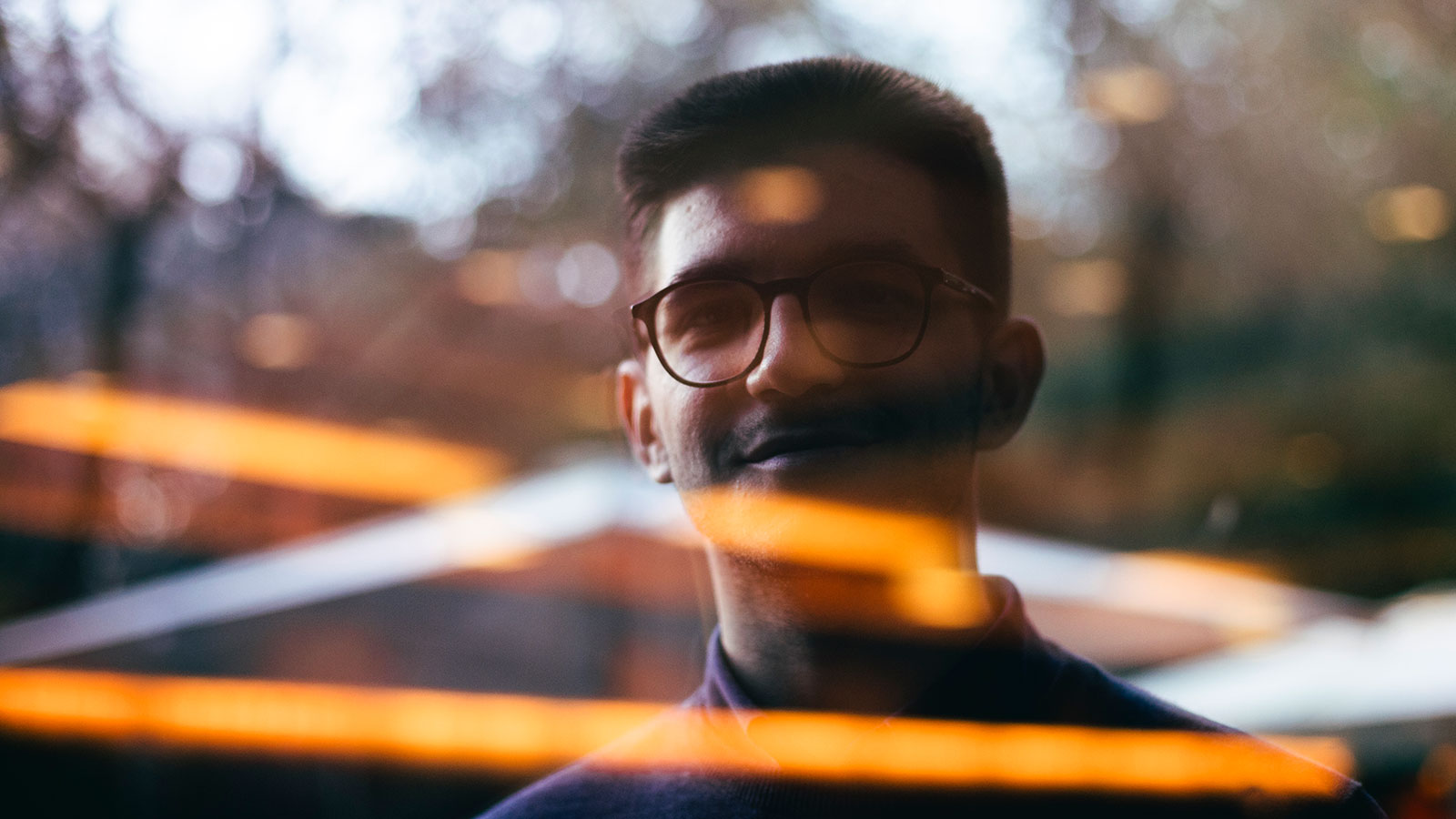
Gonçalo Jorge, who, at the age of 21, is dedicated to understanding the impact of Fake News in Portugal, acknowledges that the goal is clear: “thinking about what really matters”. “All the actions we can think of will always seem small and even redundant, which is why it’s so important to have these events, so we can begin to discuss everything,” he continues.
The young man, like Sara Magno, recognises that the life of these high-achieving students is extremely demanding, just like that of society as a whole, “there are always things to do, all of them very urgent, we’re always thinking about the next stage”. The Calouste Gulbenkian Foundation scholarship ambassador explains that this is because “when you find yourself in the middle of a very demanding situation, it’s hard to get out of it, you go into survival mode”. This is also why they recognise that initiatives such as the workshop are fundamental. “The ideas that emerged at the end of the day, the potential that can arise from a network of super-talented people with a Foundation behind them is one of the most empathetic gestures we can have towards life”, says Sara Magno.
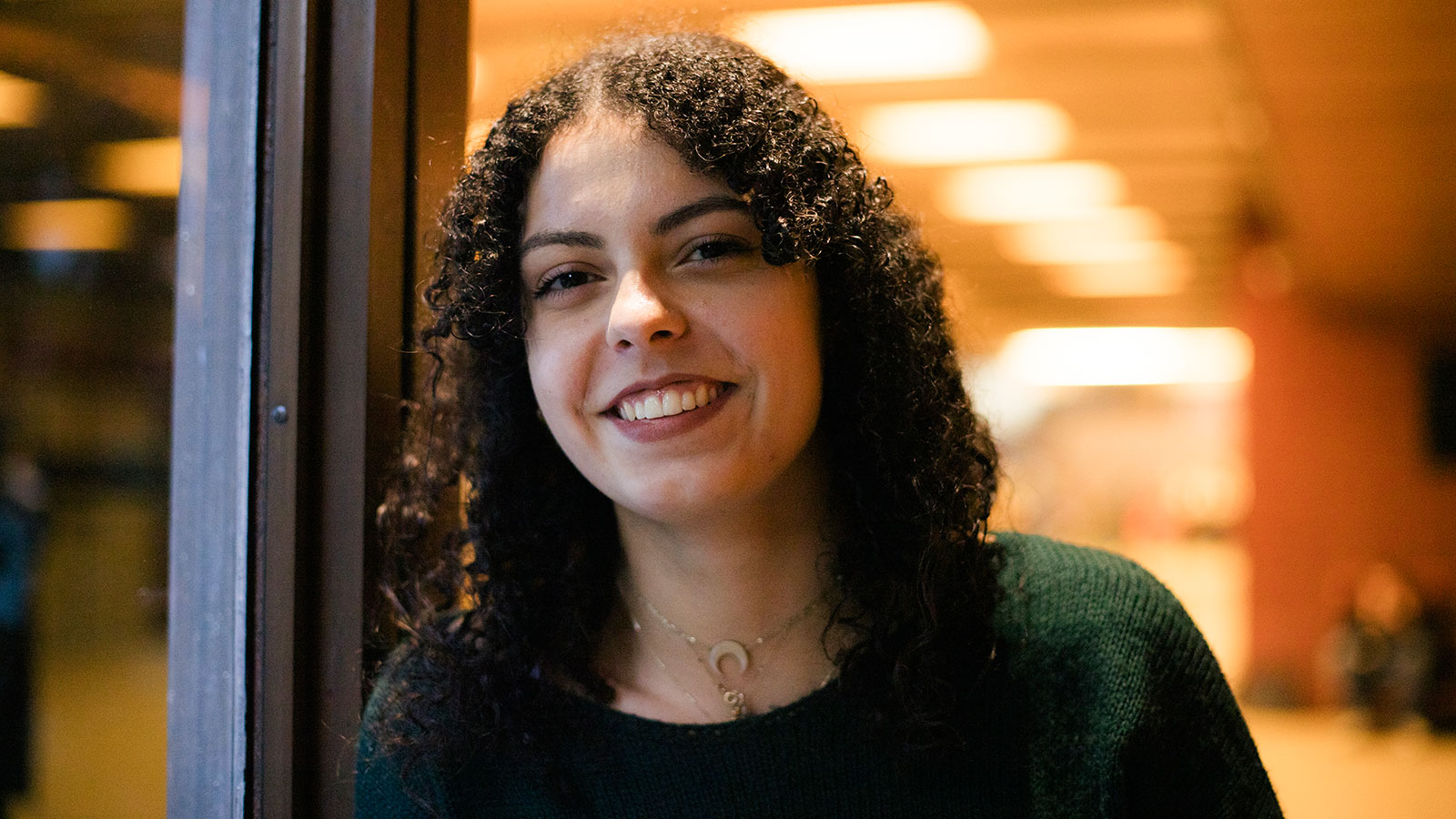
And if the challenges proposed in the workshop opened up the imagination of each of these scholarship recipients, they also made it possible to remember that ‘the great thing about this whole family is the belief that we all have the right profile to accomplish something”, says Mariana Maia Rocha, an optimistic young woman who is determined to take things further: ‘I don’t know if we’re going to change the world, but I believe that in the long term we’ll be able to change some things, or some part of them.

